Why you should never pour salt down a kitchen drain – according to experts
The popular trick may be causing long-term problems for your kitchen – here's what to do instead

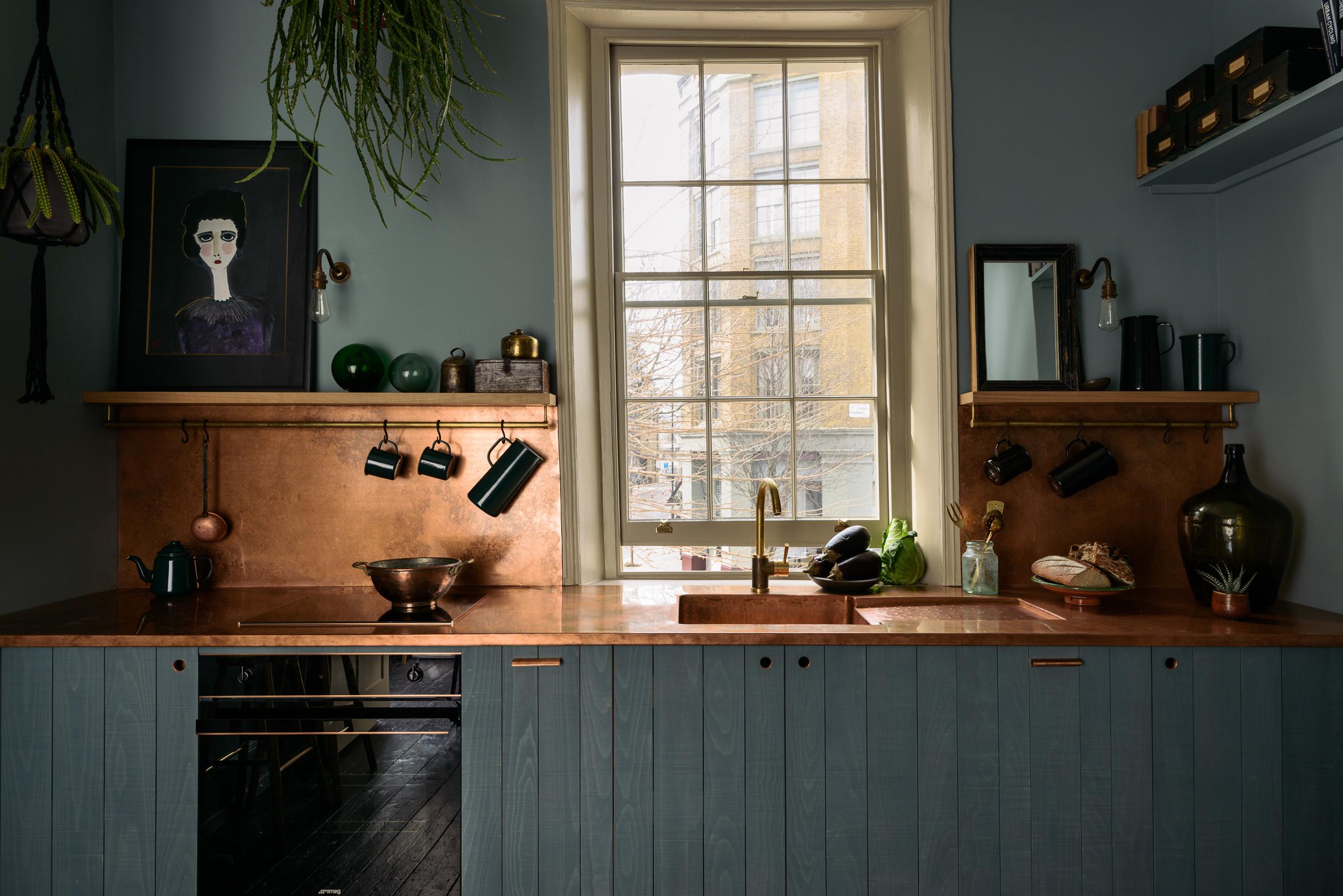
Design expertise in your inbox – from inspiring decorating ideas and beautiful celebrity homes to practical gardening advice and shopping round-ups.
You are now subscribed
Your newsletter sign-up was successful
Want to add more newsletters?

Twice a week
Homes&Gardens
The ultimate interior design resource from the world's leading experts - discover inspiring decorating ideas, color scheming know-how, garden inspiration and shopping expertise.

Once a week
In The Loop from Next In Design
Members of the Next in Design Circle will receive In the Loop, our weekly email filled with trade news, names to know and spotlight moments. Together we’re building a brighter design future.

Twice a week
Cucina
Whether you’re passionate about hosting exquisite dinners, experimenting with culinary trends, or perfecting your kitchen's design with timeless elegance and innovative functionality, this newsletter is here to inspire
When faced with a bad odor in your kitchen, it is a widespread practice to clean your sink with salt. Homeowners have trusted this accessible technique for centuries because it is seemingly impossible to get wrong. However, experts have revealed that this kitchen sink cleaning tip is not worth your time – and may be causing bigger problems over time.
The salt trick is not an efficient way of removing the foul odor – especially over a long period. But if you leave your salt for some time, then experts have warned that an unpleasant smell may be the least of your problems. Here's what they recommend doing instead.
Why you should not pour salt down your drain
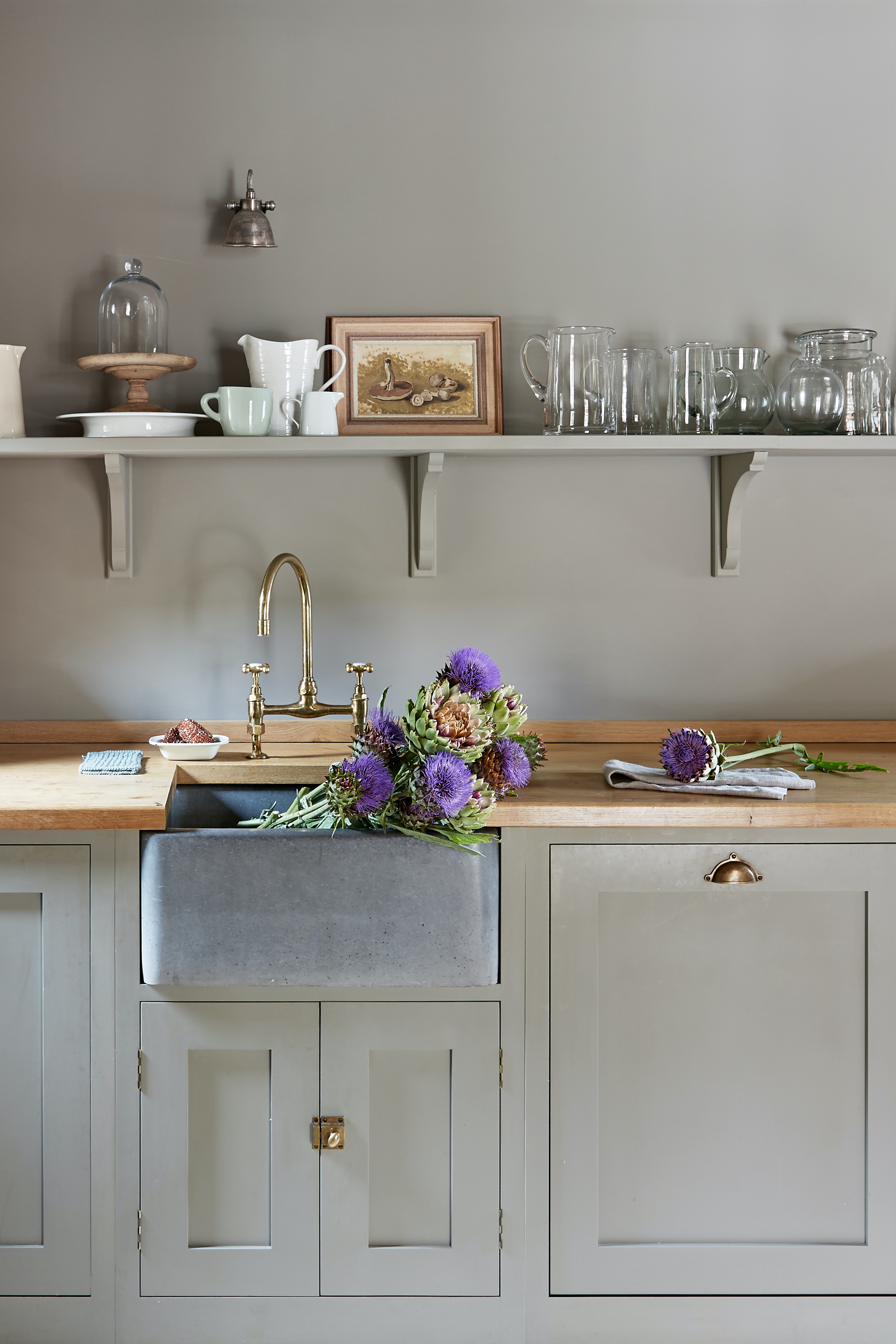
'I don't recommend that people pour salt down their drains or in their garbage disposals and think that it will remove the smells. In fact, that may do some damage over time if you forget and leave it there for days,' says Andrew Miles, an Alabama-based plumber who has over three decades of experience.
Jake Romano, the Manager at John The Plumber, agrees. He adds that this age-old kitchen sink idea won't do anything to solve the problem over a long period of time as the smell comes from matter accumulating in the drain. Therefore, the salts are simply concealing the smell – and not getting rid of the matter.
1. Physical drain cleaning
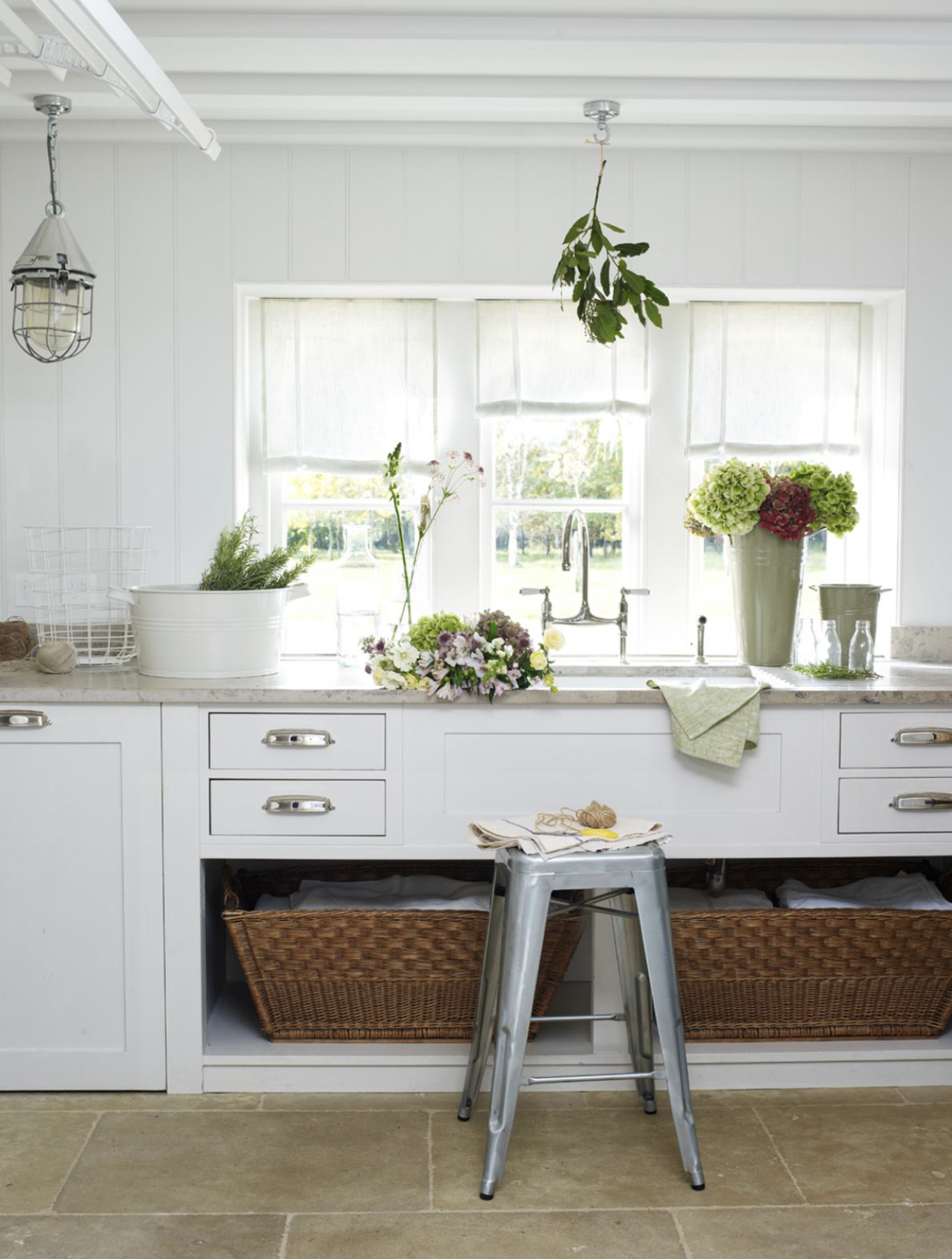
According to Jake, the best solution is to physically clean your drain – because while this process is long – it is the best way (and safest) way to ensure you eliminate bad smells for good.
'Most plumbers don't recommend chemical drain cleaning for several reasons, but a very practical reason is they can turn a bit of gunk into an actual drain blockage,' Jake says.
'If there's some gunk caked on the inner pipe stretched along a pipe, chemical drain cleaners (including home remedies) may loosen the accumulation. Some of this sludge may begin to move while other sections don't.' Therefore, as some of the matter moves towards the gunk at the bottom, you may be left with a blocked drain.
Design expertise in your inbox – from inspiring decorating ideas and beautiful celebrity homes to practical gardening advice and shopping round-ups.
2. Drain enzymes
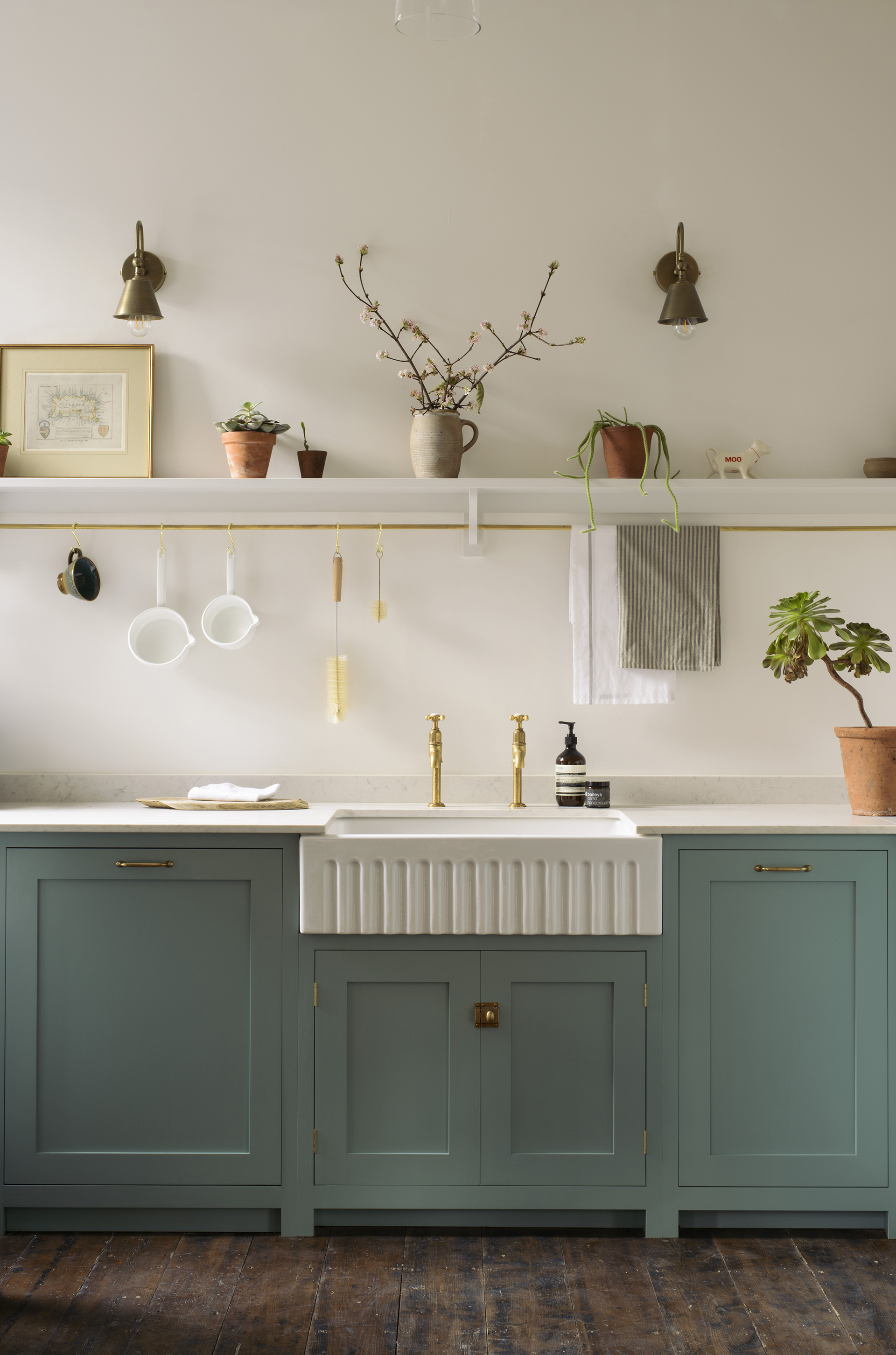
Alternatively, the plumber suggests picking up some drain enzyme sticks online (such as these sticks on Amazon). 'They're scented, they smell pretty, and they can help prevent gunk from accumulating in the drains,' he explains.
However, it is essential to remember that some enzymes may interfere with certain types of pipes. Therefore, you should check the product's compatibility with your sink before installing it.
3. Citrus peels
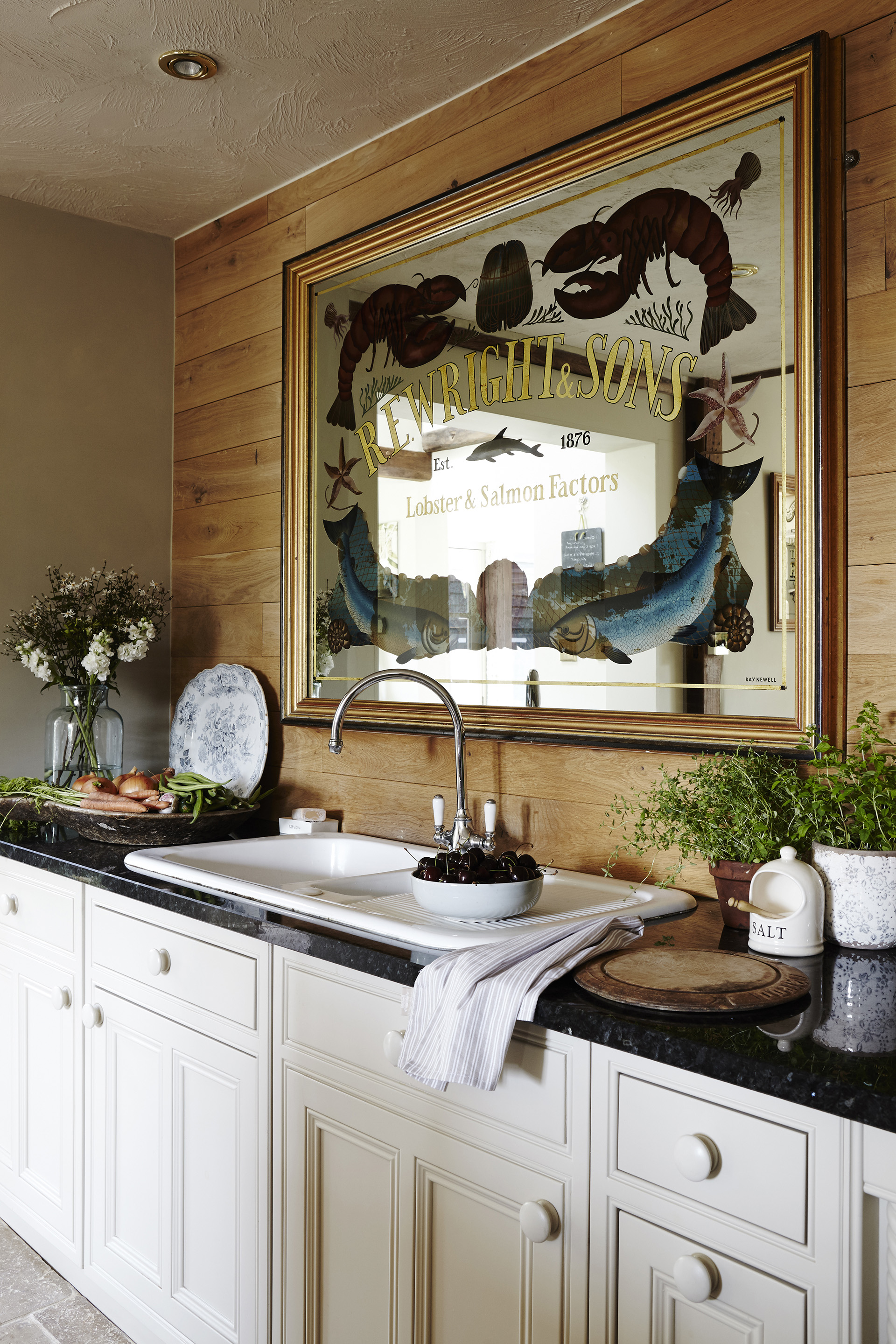
You may have heard about using orange peel to deter pests in the garden, but its natural power isn't limited to the great outdoors. Andrew explains that you can use citrus fruit peels to help deodorize – and while this solution will not unblock your sink – it will take care of the odor naturally.
'Start with the peel of one orange, lemon, or lime and grind it up until it's gone. See if the bad smell persists and if so, rinse and repeat with more citrus peel until the smell is pleasant again,' the plumber shares.

Megan is the Head of Celebrity Style News at Homes & Gardens, where she leads the celebrity/ news team. She has a history in interior design, travel, and news journalism, having lived and worked in New York, Paris, and, currently, London. Megan has bylines in Livingetc, The Telegraph, and IRK Magazine, and has interviewed the likes of Drew Barrymore, Ayesha Curry, Michelle Keegan, and Tan France, among others. She lives in a London apartment with her antique typewriter and an eclectic espresso cup collection, and dreams of a Kelly Wearstler-designed home.